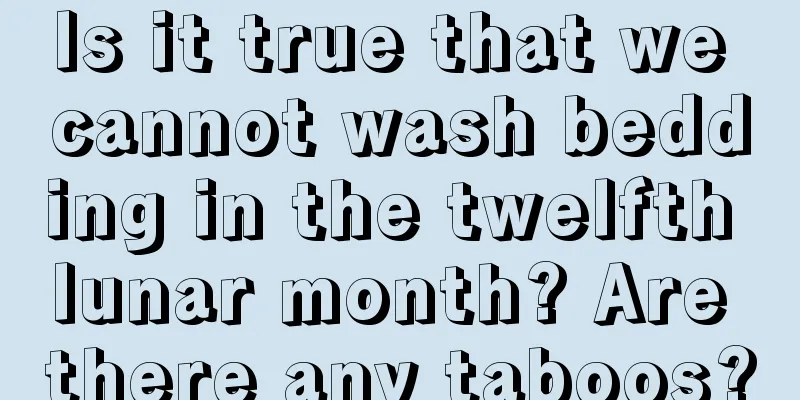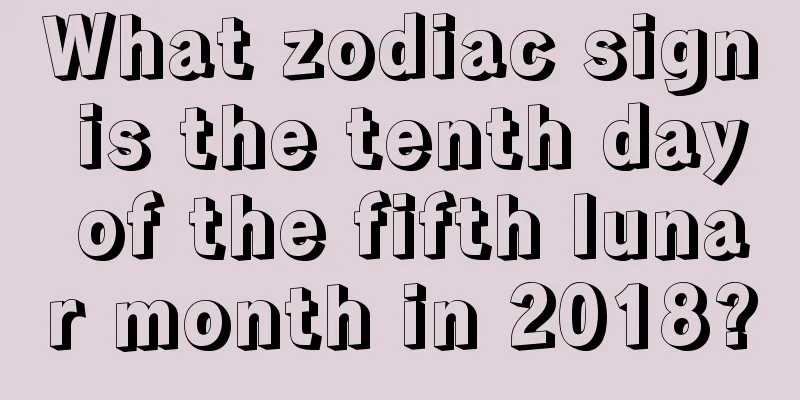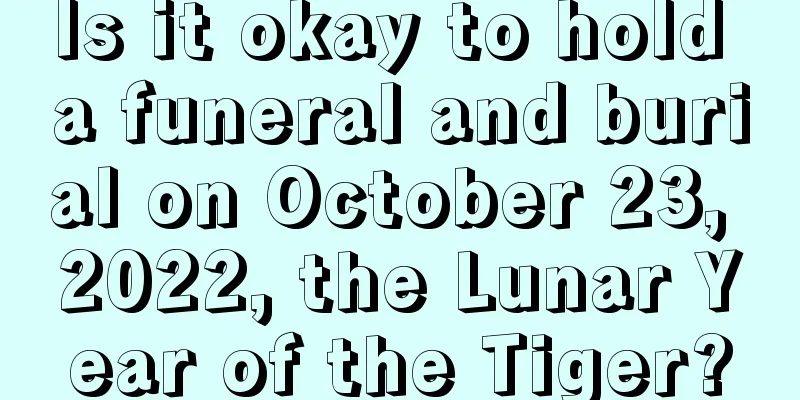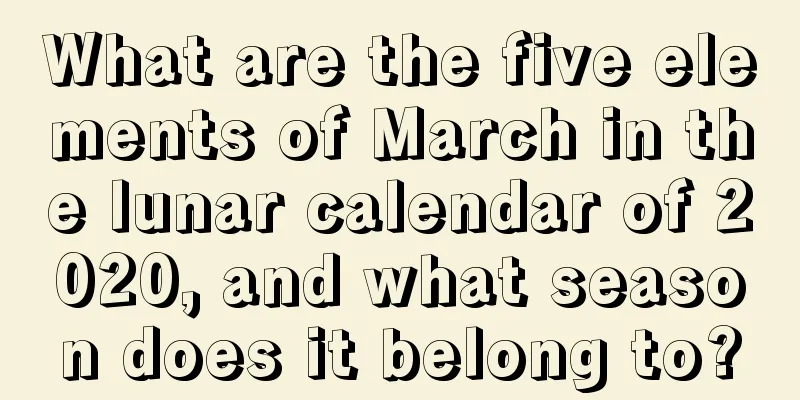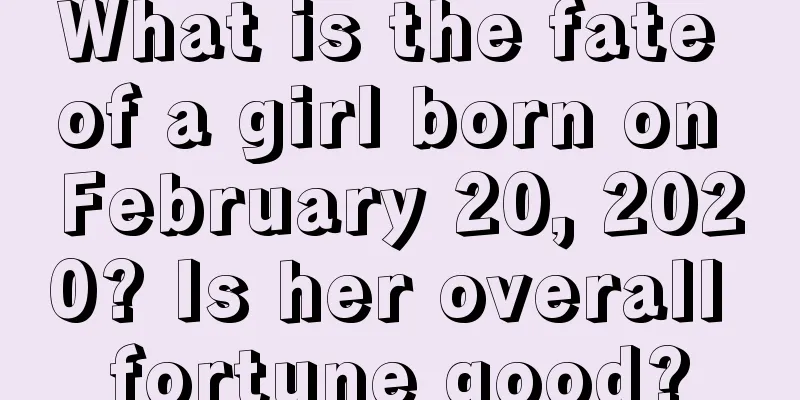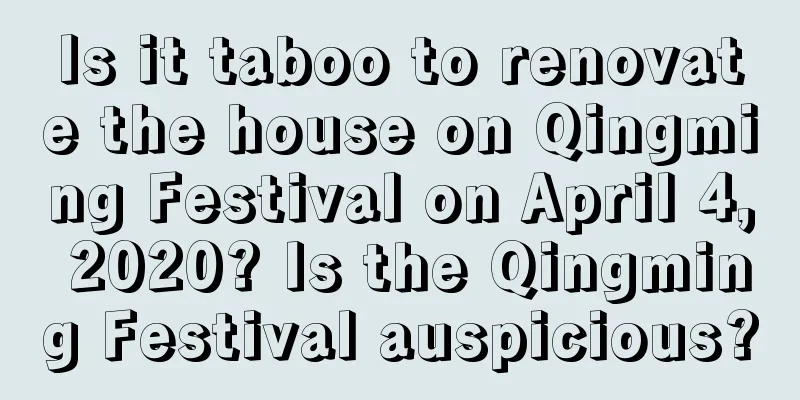Should we visit graves and pay homage to ancestors on the Double Ninth Festival? What are the taboos in visiting graves and paying homage to ancestors on the Double Ninth Festival?

Introduction: The Double Ninth Festival is one of the traditional festivals, and it has many customs. So should we visit graves and pay homage to ancestors on the Double Ninth Festival? What are the taboos in visiting graves and paying homage to ancestors on the Double Ninth Festival? Mr. Shui Mo has carefully compiled detailed information about the ninth month of the lunar calendar in 2018. If you want to know the auspicious and inauspicious days in the ninth month of the lunar calendar, please go to Mr. Shui Mo.Should we visit graves on Double Ninth Festival?The Double Ninth Festival, along with the Chushi Festival, Qingming Festival and Yu Festival, are also the four major traditional Chinese festivals for ancestor worship. The custom of sweeping tombs and worshipping ancestors on Double Ninth Festival has a long history.The Double Ninth Festival was formed as early as the Warring States Period. In the Tang Dynasty, it was officially designated as a folk festival. According to the old custom, all relatives had to climb high places together to "avoid disasters" on this day. To this day, in many places such as Tonglu in Zhejiang, Putian in Fujian, Taiwan, and Singapore, people still "prepare pigs and sheep to worship their ancestors" on September 9th, which is called the Autumn Sacrifice. It is understood that today, the descendants of Confucius in the Pearl River Delta will go to the Fengming Ancient Tomb in Baiyun District, Guangzhou to worship their ancestors on the Double Ninth Festival every year - worshipping Taigong, which is an ancient family custom. Perhaps it is precisely because of this origin that the Chinese government designated this day of each year as "Old People's Day" and "Respect for the Aged Day" in 1989 to guide people to respect, love and honor the elderly. Tomb sweeping on the Double Ninth Festival is in line with the actual situation in mountainous areas and has many benefits. Because most of the tombs in mountainous areas are located on the side of mountains and on ridges, and the surrounding areas are basically overgrown with vegetation, it rains heavily during the Qingming Festival, making walking inconvenient. It is inevitable that clothes will get wet when climbing mountains and ridges to sweep the tombs. The Double Ninth Festival is different, as it is a time of clear and cool autumn with little rain. Tomb-sweeping at this time is not only convenient, but you can also climb up high and look far into the distance to enjoy the beautiful scenery. Moreover, the Double Ninth Festival is usually very close to the National Day, so people who work away from home can easily arrange time to return home to visit graves and worship their ancestors with their relatives. What are the taboos in visiting graves and worshipping ancestors on Double Ninth Festival?1. The order of tomb sweeping is to sweep the tomb first, that is, to clean the cemetery. The second is sacrifice, which is a crucial procedure. First, it is to express grief, and second, it is to communicate with ancestors. Because mountains have spirits but no masters, and ancestors have masters but no spirits, communicating with ancestors can better obtain the spiritual energy of mountains and rivers. This is Feng Shui. When sweeping the graves, people bring wine, food, fruits, paper money and other items to the cemetery, offer the food in front of their relatives' graves, burn the paper money, add new soil to the graves, repair the graves, break off a few green branches and insert them on the graves, and put some paper money on top so that others can see that there are still descendants in this grave, and then kowtow and pay their respects.2. Ancestor worship should be performed in person at the cemetery, but due to various reasons, many people cannot return to their hometown to participate in the grave worship activities, so you can also worship your ancestors at home. The method is to place food for worship on the balcony or in the living room towards the direction of your hometown, burn three incense sticks, bow three times, and silently recite relevant words. Then, paper money is burned as a sacrifice. 3. When you start to sweep the graves, it is best not to eat or to eat vegetarian food, and to dress neatly to show courtesy and respect to the ancestors. 4. Do not laugh or curse when visiting the graves, because the cemetery is the home of the ghosts. Therefore, you should not step over the graves and offerings, make loud noises, laugh or curse, use foul language, run around or urinate anywhere. Doing so is not only disrespectful to your ancestors, but also a nuisance to the nearby spirits. You are not allowed to trample on other people's graves or comment on the design of the tomb. This will be regarded as blasphemy. If you encounter bad aura, you will be in trouble when you return home. |
<<: Do boys born on September 12, 2018 in the lunar calendar have good personalities?
>>: Can I travel on the seventh day of the ninth lunar month in 2018? What is the luck?
Recommend
Is it suitable to travel far on the 28th day of the 11th lunar month in 2018? What are the signs for this day?
Introduction: According to the tradition of our co...
Is February 24th of the lunar calendar 2018 suitable for decoration?
The speed of social development is getting faster ...
How about the lunar October 19th, 2018? Is it a good day?
The tenth month of the lunar calendar is a new mo...
Is it suitable to pick up the car on July 16th of the lunar calendar in 2020? Do I need to put evil-repelling ornaments when picking up the car?
Is it suitable to pick up the car on July 16th of...
Is August 27th of the lunar calendar in 2020 an auspicious day?
Is August 27th of the lunar calendar in 2020 an au...
What are the customs of Jingzhe? Is it possible to “beat the villain” during Jingzhe to get rid of bad luck?
Introduction: Jingzhe is one of the 24 solar terms...
Is March 24th of the lunar calendar 2021 a good day? Can we move on the same day?
There are certain considerations and rules when ch...
Where is the God of Wealth on the first day of August 2017? How to worship the God of Wealth according to age?
The golden autumn is in August. We harvest beauti...
Is it possible to get married on the day of Minor Cold in 2018? Is this a good day for a wedding?
Why do we have to choose a date for marriage? I ju...
What is the fate of a girl born on November 22, 2018 in the lunar calendar?
What is the fate of a girl born on November 22, 20...
Check the auspicious date for groundbreaking of renovation in October of the lunar calendar 2017!
Introduction: As people's living standards are...
2020 Spring Festival 22nd day of the twelfth lunar month, is it not appropriate to do anything in Spring Festival? What is the specific time to avoid Spring Festival in 2021?
Introduction: The Beginning of Spring is the first...
Which season does the Big Snow solar term belong to? Is it suitable to bury the deceased the day before the Big Snow in 2020?
Introduction: Different solar terms correspond to ...
When is the Dragon Boat Festival in 2018? What are the other names for the Dragon Boat Festival?
The Dragon Boat Festival is a traditional festival...
What are the do's and don'ts on the 24th day of the third lunar month in 2018?
In the third month of the lunar calendar, light f...

